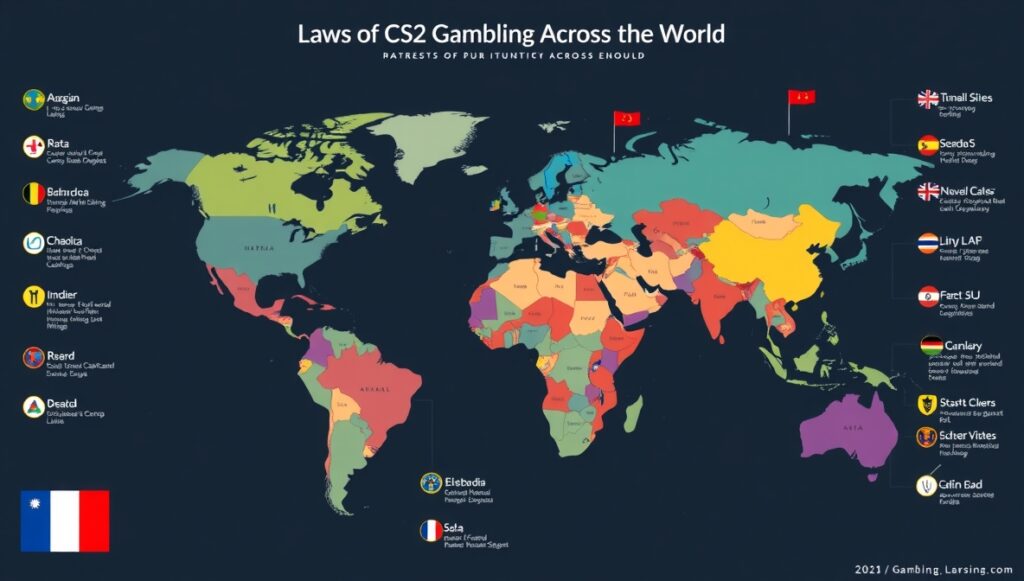
The legal framework governing CS2 gambling varies dramatically worldwide, reflecting different national approaches to online gaming, virtual goods, and cryptocurrency transactions. Operators and players must navigate a patchwork of regulations that affect accessibility, licensing, advertising, and transaction methods.
Europe and North America
Several European Union countries such as Germany, the Czech Republic, and Hungary have established regulated markets for online gambling, requiring operators to obtain licenses and comply with strict advertising and player protection laws. In Canada, gambling regulation occurs provincially, with Ontario leading in legalized and licensed online betting. Cryptocurrency use in gambling is accepted with varying regulatory clarity.
Asia and CIS
Many Asian countries maintain prohibitive stances toward online gambling. For example, China enforces strict bans, while Japan permits tightly controlled casino resorts. CIS countries display mixed legality—with Belarus, Ukraine, and Moldova allowing online gambling under regulations, but cryptocurrencies are generally not accepted as legal payment forms.
Offshore and Emerging Jurisdictions
Jurisdictions such as Curacao have become hubs for licensing online gambling operators, offering streamlined regulatory processes and international reach. These licenses enable many CS2 gambling platforms to operate legally while navigating stricter national laws elsewhere.
Advertising and Enforcement Challenges
Advertising CS2 gambling faces growing restrictions, especially to protect minors and vulnerable populations. Some countries and platforms ban skin gambling ads outright, requiring operators to innovate marketing while maintaining compliance. Enforcement varies, with ongoing efforts to balance industry growth and social responsibility.
Understanding legal nuances is essential for players and operators in the CS2 gambling landscape, ensuring compliance and protecting consumer interests across borders.





